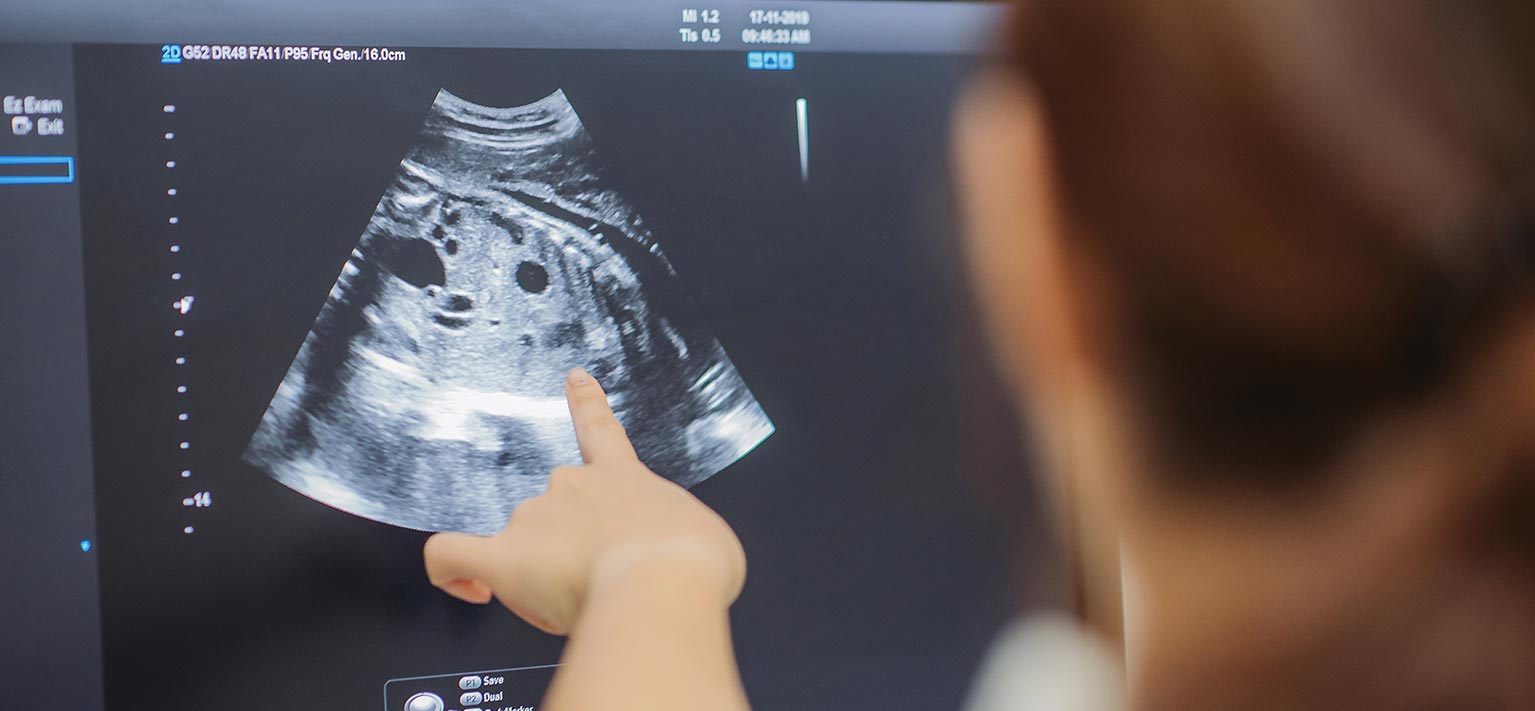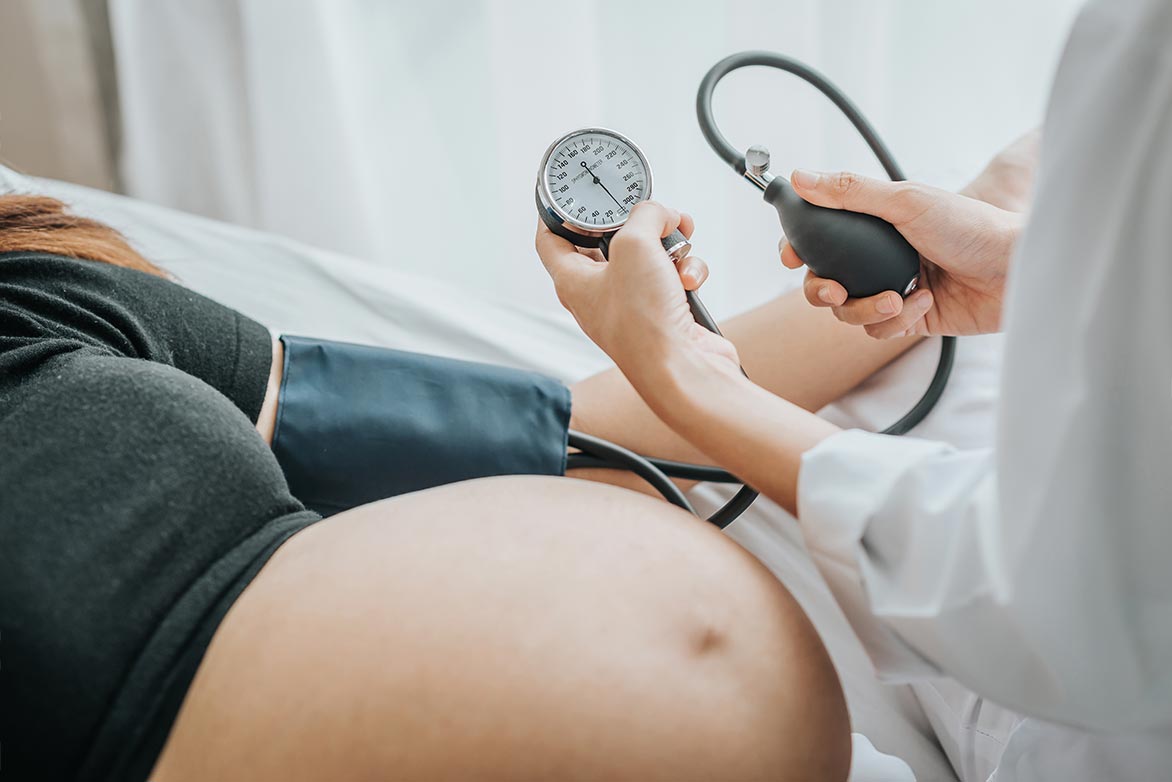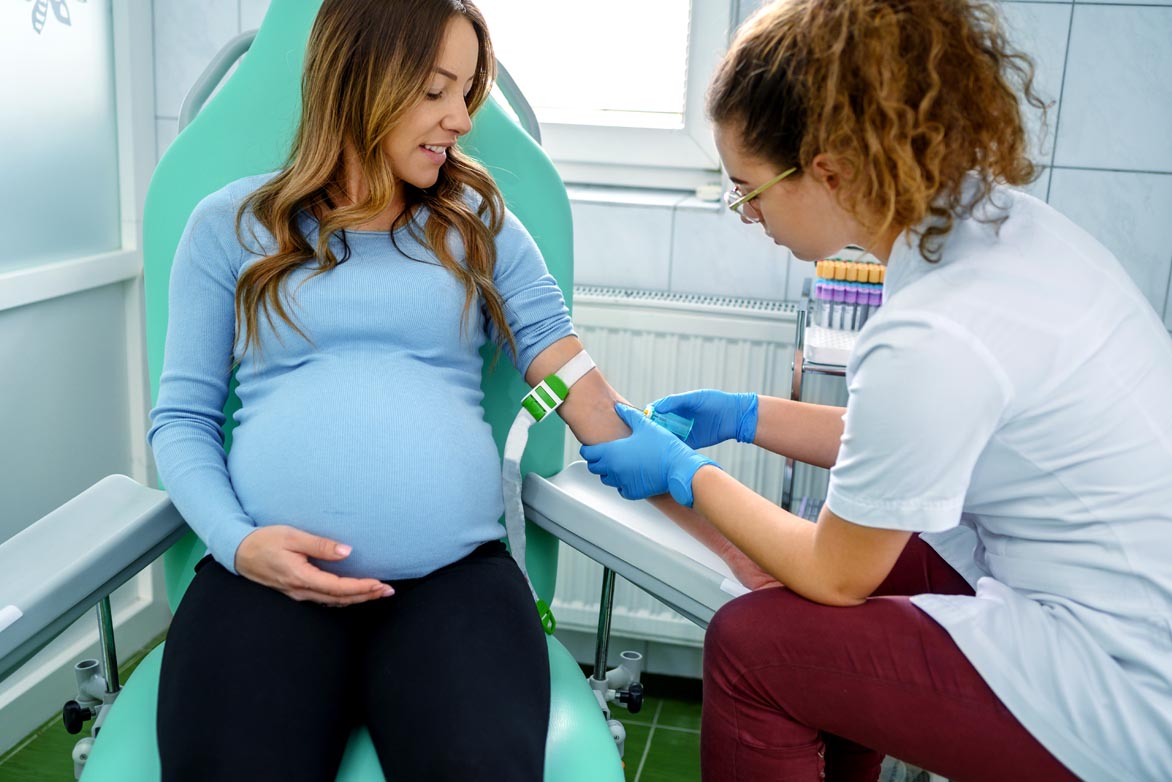
Prenatal testing
Most pregnancies end with the birth of a healthy baby. Prenatal care at Kaiser Permanente includes routine testing and screening to make sure you’re healthy and that your baby is developing normally.
Depending on your health history and how your pregnancy is progressing, we may recommend prenatal screening tests or diagnostic tests for birth defects. Both types of prenatal tests are available to you, regardless of your age. The tests are optional, so the decision about whether or not to get screened, or which test to choose, is up to you.

Prenatal screening tests
Prenatal screening tests can help you determine if you have a higher or lower chance of having a baby with certain birth defects. These screenings are completely safe and pose no risk to your pregnancy. Screening tests do not look for all types of birth defects, but they can help detect:
- Down syndrome – a chromosome abnormality that causes mental retardation and some physical birth defects.
- Edwards syndrome/trisomy 18 – a chromosome abnormality that causes severe mental retardation and physical birth defects.
- open neural-tube defects – openings in the baby’s spine or skull.
- abdominal-wall defects – openings in the baby’s abdomen (belly).
What screening tests are available?
- First trimester screening: A blood test will measure the levels of two substances (PAPP-A and free Beta hCG). This screening also includes a special nuchal translucency (NT) ultrasound between weeks 11 and 13 of pregnancy.
- Second trimester quad screening: A blood test between weeks 16 and 20 will measure four blood markers (AFP, hCG, uE3, inhibin).
- Sequential screening: Combines the results of the First Trimester Screening with those from the Second Trimester Quad Screening for a comprehensive overview.
- Cell-free DNA testing: A blood test available to women who are at high risk for having a baby with certain birth defects, including Down syndrome and Trisomy 18. Your provider will discuss this test with you if you: (1) will be 35 years or older when your baby is born,(2) have a history of genetic issues from past deliveries, (3) are known to carry certain genetic diseases. After a pretest meeting with a genetic counselor, this test can be done after week 10 of your pregnancy.
What do the screening results mean?
Most women who have a screening test receive negative results. This means that the chance the baby has one of these birth defects is low. While a “screen negative” does not guarantee your baby will be free of health problems or birth defects, it is a good sign and further testing is not routinely offered.
A screen positive result does indicate that the chance for a birth defect is high enough to consider further testing from our Maternal Fetal Medicine department. A genetic counselor will discuss the choices for further diagnostic testing, such as amniocentesis or chorionic villus sampling (CVS).
Please know that most women with screen positive results go on to have healthy, happy babies.
Diagnostic procedures
Prenatal diagnostic procedures can confirm if specific birth defects are present in your baby. Diagnostic procedures can find more than 99% of all babies with a chromosome abnormality. The procedures do not test for all birth defects.

Prenatal diagnostic tests
Prenatal diagnostic procedures can confirm if specific birth defects are present in your baby. Diagnostic procedures can find more than 99% of all babies with a chromosome abnormality. The procedures do not test for all birth defects.
What diagnostic procedures are available?
- Chorionic villus sampling (CVS)
CVS is usually done between 10 and 13 weeks of pregnancy. It is done by putting a thin flexible tube through your vagina and cervix or by using a thin needle through your lower abdomen (belly). The procedure takes a small sample of the early placenta (the organ that nourishes the developing baby). CVS checks for chromosome abnormalities in the growing baby. The risk for miscarriage after CVS is less than 1 in 300.
- Amniocentesis
Amniocentesis is usually done between 15 and 20 weeks of pregnancy. It is done by taking a sample of the fluid surrounding the baby using a thin needle that passes through your abdomen (belly). This fluid is used to detect any chromosome abnormalities in the growing baby. Amniocentesis can also find some other birth defects like spina bifida. The risk for miscarriage after amniocentesis is less than 1 in 1500.
What do the diagnostic results mean?
Most women who have a diagnostic procedure will get normal results. Normal prenatal diagnosis results can provide reassurance that your baby does not have Down syndrome or another chromosome problem. However, no test can completely guarantee that your baby has no health problems or birth defects.

Ultrasound testing
You will have a routine prenatal ultrasound in the second trimester at about 20 weeks. Ultrasound is a good test to diagnose neural-tube defects, abdominal-wall defects, and some other physical-birth defects. Some ultrasound findings may also increase the concern about a chromosome abnormality in the baby. However, only CVS or amniocentesis can accurately diagnose a chromosome abnormality during pregnancy. If this happens, you will be offered genetic counseling and consultation with one or more specialists. These discussions will include the options available for your pregnancy based on your specific situation.
How much does each test cost?
The actual amount varies depending on your Kaiser Permanente coverage plan. Kaiser members are responsible for any co-pays or fees related to each test. For a screening test, this may include laboratory costs, as well as an additional cost for the NT ultrasound.
If you choose to have a diagnostic test, there may be a cost for the procedure. Genetic counseling sessions may also include a co-pay.
Contact Member Services with the number on the back of your Kaiser Permanente ID card if you have questions about your coverage.
Making a decision
To decide if screening for prenatal birth defects is right for you, consider these questions:
- Would knowing that my baby might have a birth defect help me feel more prepared when the baby is born?
- Would I consider terminating my pregnancy if certain birth defects were found?
Considering these questions may help you decide whether you would like testing and which type of testing you might consider. If you need more information or extra support, you may want to talk further with your provider, review other educational materials, talk with your partner or a close friend, or ask to see a genetic counselor.
If you think you would like to have a prenatal screening, speak with your doctor or midwife. Additional information is available at our medical offices and at kp.org/maternity.
How to reach us
Need to make an appointment with your care provider? Feeling something unusual or like you’re going into labor? Want advice about breastfeeding? We’re here for your call.


